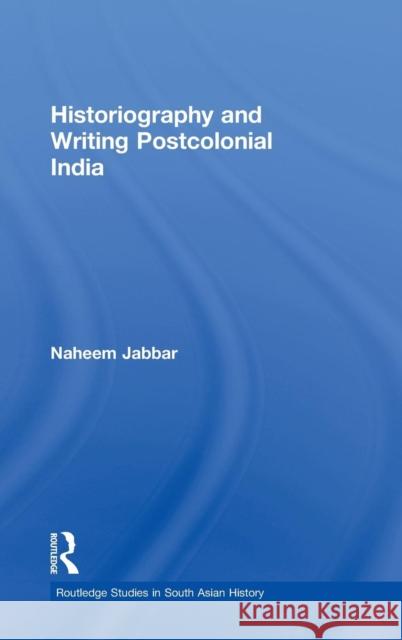Historiography and Writing Postcolonial India » książka
Historiography and Writing Postcolonial India
ISBN-13: 9780415488471 / Angielski / Twarda / 2009 / 244 str.
Historiography and Writing Postcolonial India
ISBN-13: 9780415488471 / Angielski / Twarda / 2009 / 244 str.
(netto: 443,08 VAT: 5%)
Najniższa cena z 30 dni: 458,60
ok. 22 dni roboczych.
Darmowa dostawa!
A critical examination of post-colonial Indian history-writing. In the years preceding formal Independence from British colonial rule, Indians found themselves responding to the panorama of sin and suffering that constituted the modern present in a variety of imaginative ways. This book is a critical analysis of the uses made of India's often millennial past by nationalist ideologues who sought a specific solution to India's predicament on its way to becoming a post-colonial state. From independence to the present, it considers the competing visions of India's liberation from her apocalyptical present to be found in the thinking of Gandhi, V. D. Savarkar, Nehru and B. R. Ambedkar as well as V. S. Naipaul and Salman Rushdie. It examines some of the archetypal elements in historical consciousness that find their echo in often brutal unhistorical ways in everyday life. This book is a valuable resource for researchers interested in South Asian History, Historiography or Theory of History, Cultural Studies, English Literature, Post Colonial Writing and Literary Criticism.
This book is a critical examination of post-colonial Indian history-writing. Focusing chiefly on sociological formulations made by historians belonging to the Subaltern Studies collective, it explores if a historiography that styles itself as a radical alternative to more traditional accounts can provide a more objective understanding of events in the past. In the first part, the author historicises the historiographic practice itself, and he examines this proposition by looking at the role Indian history plays in formulating an ideological nationalism to resist colonial rule and states. He also examines how this idea of the nation determines the response of Indian historians in an account of transition to colonial rule. Further to this, he investigates the consequences arising from these set of problems.
The book thus introduces the reader to some of the limitations inherent in the explanatory modes of enquiry in the field of post-colonial Indian history-writing and it shows instances where a Marxist interpretation of subalternity might enable an alternative to the kinds of analysis familiarly produced by theorists. It also examines the ideological investments historical theory has in these specific interventions in the debate over subjectivity, historical experience and textuality and tests the validity of the leftist project called for by some theorists as the only legitimate alternative to either cultural nationalism and ‘modern historiography’ or global capitalism in the Third World. It will be stimulating reading to academics interested in South Asian History, the Theory of History and the Politics of Nationalism, Postcolonial Studies and English Literature.











